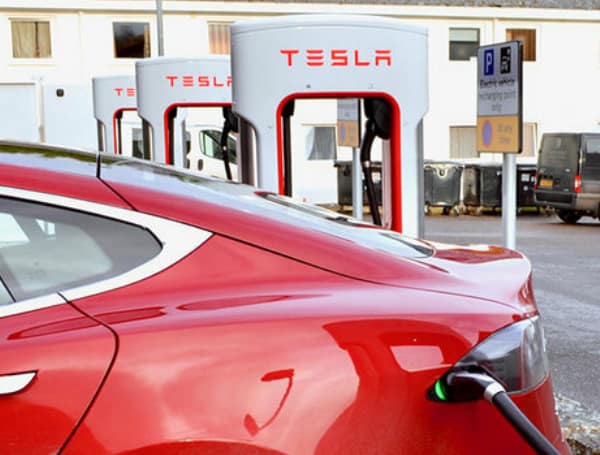TALLAHASSEE, FL. – A proposal aimed at expanding investment in electric-vehicle charging stations started to move forward Tuesday in the House, despite concerns about state regulators being directed to set prices and work outside their jurisdiction.
The House Tourism, Infrastructure & Energy Subcommittee voted 13-3 to approve a bill (HB 737) that would direct the Florida Public Service Commission to propose rules by the end of the year to establish “competitively neutral” standards for adding electric-vehicle charging infrastructure, including “fair and reasonable” electric rates from utilities. The commission would have until Jan. 1, 2024, to adopt the rules.
Sponsor David Borrero, R-Sweetwater, said that without the proposal, utilities such as Florida Power & Light and Duke Energy Florida will quickly dominate the electric-vehicle charging field.
“If we do nothing, this will allow the investor-owned utilities to rate base and edge out all competition in the market,” Borrero said.
But several lawmakers and the influential business lobbying group Associated Industries of Florida questioned the proposal.
Adam Basford, Associated Industries’ vice president of governmental affairs, said the proposal would increase the businesses that could have standing to argue in rate cases before the Public Service Commission, which could open cases to “out-of-state-folks.” Also, Basford said the bill, starting in 2024, would prohibit utilities from charging customers upfront for electric-vehicle charging stations.
“They’ve been leading the way in EV (electric vehicle) development investment, and they’re the best suited really to continue that moving forward,” Basford said of the private utilities. “We believe that this prohibition would slow down that investment and that the EV infrastructure will be limited to their ability to manage the grid.”
Rep. Rick Roth, a West Palm Beach Republican who voted against the proposal, questioned the need for the government, rather than individual businesses, to regulate the market.
“My problem here today is trying to get my head around this,” Roth said. “Having heard about it for the first time in reading about it yesterday, we’re going to have a regulatory commission try to encourage private investment. To me, it just seems a little weird.”
Rep. Randy Fine, a Brevard County Republican who voted for the measure, said more work is needed on the bill, such as removing references to establishing incentives that support private investment.
“While I’m not sure you’ve gotten everything right in here, I think you’ve got legitimate concerns out there,” Fine, who drives an electric vehicle, said. “We need more of these (stations). And we want a robust number of companies in the same way there’s not just one place to fill up your car with gas. There should be many options for you to fill up your car with electricity.”
In the past couple of years, the Public Service Commission has given approval to Tampa Electric Co., FPL and Duke Energy to set up and run charging stations, including a pilot program in which FPL could also charge 30 cents per kilowatt hour for motorists who charge vehicles at utility-owned sites.
A House bill analysis said the commission asserts it doesn’t have jurisdiction over non-utilities providing electric-vehicle charging.
“It is not clear as to whether the PSC, through rulemaking, could prioritize and encourage private investment, or stimulate competition and customer choice in the EV charging market since such functions are outside of its statutory jurisdiction,” the staff analysis said.
The proposal, along with a Senate version (SB 920) that hasn’t advanced since drawing support from a committee on Jan. 18, came as Florida will get federal money to expand vehicle charging stations. The U.S. Department of Energy last week announced Florida’s initial share of a $5 billion pot was just over $29 million.
Lawmakers in 2020 directed the Florida Department of Transportation to develop a plan that encourages the expansion of charging stations along the state highway system.
The state later designated $8.6 million to add 34 fast-charging stations along Interstate 95, Interstate 4, Interstate 75, Interstate 275 and Interstate 295 as part of $166 million Florida received as its share of a $14.7 billion settlement between Volkswagen and the U.S. Department of Justice over emissions violations.
CleanEnergy.Org reported that electric vehicles in Florida accounted for 3 percent of all cars sold from July 2020 to July 2021.
Visit Tampafp.com for Politics, Tampa Area Local News, Sports, and National Headlines. Support journalism by clicking here to our GoFundMe or sign up for our free newsletter by clicking here.
Android Users, Click Here To Download The Free Press App And Never Miss A Story. Follow Us On Facebook Here Or Twitter Here.



Putting the EV before the plug !